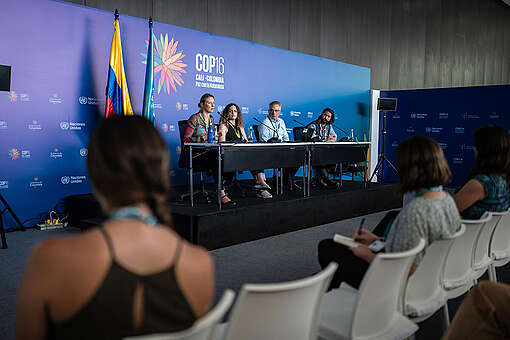Cali, Colombia – As COP16 resumes talks for a second week, rich countries will be faced with answering for a week of stumbling inaction on the delivery of finance for implementation. As ministers arrive and the agenda for the final week of biodiversity negotiations begins taking form, Greenpeace calls for urgent delivery on commitments to close the nature finance gap and to ensure direct access to funding for Indigenous Peoples and local communities.
An Lambrechts, Biodiversity Politics Experts, Greenpeace International, said: “COP16 could deliver major breakthroughs on nature protection that are held up in traffic as governments argue over whether or not to set up a new fund for the remaining money that isn’t coming in yet. Leaders can show their commitment to real action by breaking the silos for climate-biodiversity action, direct access to finance for Indigenous Peoples and local communities that do the real lifting on biodiversity protection, ocean and forest protection, and a payment mechanism for corporations who profit off digital information from nature to finally pay what they owe to the world for taking these natural resources.”
“Well-paid industry representatives are doing their worst to undermine progress to ensure they can continue profiting off nature for free. We need less big promo shows for false solutions like ‘biodiversity credits’ and more of the new money for actual nature protection that is absent so far. What is clear in Cali is the world is ready for global action on biodiversity if governments can deliver a real outcome at COP16.”
Estefania Gonzalez, Deputy Campaigns Director, Greenpeace Andino said: “Each passing day without the fulfillment of agreed commitments is a missed opportunity to protect biodiversity. Countries with greater resources have both the capacity and responsibility to drive change, by meeting the agreed goals and supporting those facing the greatest impacts of biodiversity loss. Latin America is one of the most biodiverse regions on the planet, so when developed countries fulfill their financial responsibilities, they are not only supporting these regions but also safeguarding the well-being of their own citizens. Nature needs concrete actions and decisions today to ensure a balanced future for all.”
Families on the fron
Nov 15,2024


